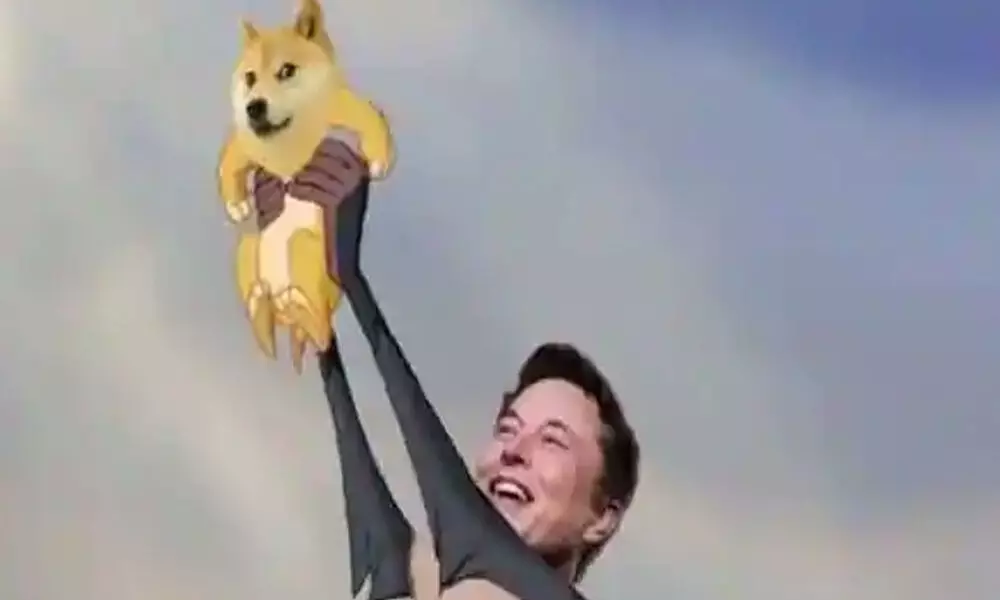How Dogecoin a people's hustle
Even if it’s a joke, Musk has tapped into a mood that makes millions of people feel like insiders
image for illustrative purpose

Yeah, it's a hustle." And with that, Elon Musk as host of Saturday Night Live brought down the value of Dogecoin by 35 per cent and cemented it firmly in the minds of millions more retail investors, forcing us all to wait and see whether such pessimism will be their final verdict.
That's because Doge isn't just any financial asset, and Musk wasn't just any host. He's now the biggest booster of the world's fifth-most valuable cryptocurrency, having talked up the coin over the past few months, including the announcement Sunday that it'll be used to pay for a new moon mission launched by his SpaceX rocket company next year.
The statement of intent reflects Musk's generally more positive comments about a product founded in 2013 as a parody of Bitcoin. Asked in February whether he thought Dogecoin could be the next global currency, Musk responded: "I think it should be the will of the people. … What would be the most ironic outcome? That the currency that was invented as a joke in fact becomes the real currency."
This ironic hype culminated in SNL's Weekend Update segment, where Musk played Lloyd Ostertag, a bow-tied financial expert who labeled himself "the Doge father." Asked six times to explain Dogecoin, he answered in the vague cliches we've come to expect from crypto-boosters: It's a digital currency; it's the future of money; it's unstoppable. The skit ends with Michael Che positing, "Oh, so it's a hustle?" and Musk, with a shrug of his shoulders, admits it is. Musk may have previously sounded caution about investing in Dogecoin, noting that it's highly speculative, but after less than 10 seconds of dialogue on the iconic show, the will of the people made itself felt in a big way. And that's why there's as much chance that the token will rebound as it may continue to fall: Dogecoin's future is in the hands of ordinary folks who will decide its direction.
There are parallels here with the GameStop Corp. saga of just a few months ago, when incensed Redditors decided to gang up on short-sellers to bid up the stock of the American computer games retailer. That frenzy, which drove GameStop up by 20 times in a matter of months, wasn't the product of online brokerages or the advent of day-trading, which have both been around for decades.
Instead, it was the growing feeling by a burgeoning number of people that real financial power can and should reside in their hands, rather than stay confined to the elites of Wall Street who dare drive down the stock of a beloved franchise.
It matters little that GameStop, the company, faces shrinking revenue and declining profits, making a short play entirely logical. Just as it's largely irrelevant that very few of the people who crow loudly about the future of cryptocurrencies understand the technologies behind them, or the mechanics of payments systems.
What's powerful is that after decades of largely being passive bit-players in global markets where the rich got richer, anyone with a smartphone and internet connection can not only take control of their financial future, but help shape and direct it. That comes after years of watching sub-prime mortgage products lead to financial crisis, invitation-only parties for the choice IPOs, and connected insiders getting the lion's share of wealth from newly minted pandemic cash. And now Dogecoin is having its day. While most buyers don't actually understand the mechanics of blockchain technology, they do get that it's a caricature and they love being in on the joke. Maybe that's enough, a chance of being a knowing insider for once. In engineer parlance, this satirical trait isn't a bug in Dogecoin. It's a feature.
Musk gets the joke, and his fans like the way he tells it. He may be right that Dogecoin is a hustle. But to those craving democratization of the financial markets, at least it's their hustle.
(Bloomberg)

